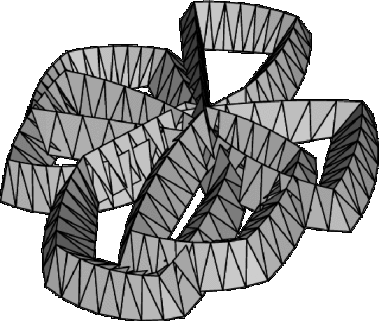
We describe a perturbation scheme to overcome degeneracies and precision problems for algorithms that manipulate polyhedral surfaces using floating point arithmetic. The perturbation algorithm is simple, easy to program and completely removes all degeneracies. We describe a software package that implements it, and report experimental results. The perturbation requires \(O(n \log^3 n + nDK^2)\) expected time and \(O(n \log^3 n + nDK^2)\) working storage, and has \(O(n)\) output size, where n is the total number of facets in the surfaces, \(K\) is a small constant in the input instances that we have examined, \(D\) is a constant greater than K but still small in most inputs, and both might be as large as n in pathological inputs. A tradeoff exists between the magnitude of the perturbation and the efficiency of the computation. Our perturbation package can be used by any application that manipulates polyhedral surfaces and needs robust input, such as solid modeling, manufacturing and robotics. We describe an application for the computation of swept volumes, which uses our perturbation package and is therefore robust and does not need to handle degeneracies. Our work is based on the reference below, which handles the case of spheres, extending the scheme to the more difficult case of polyhedral surfaces perturbation.
